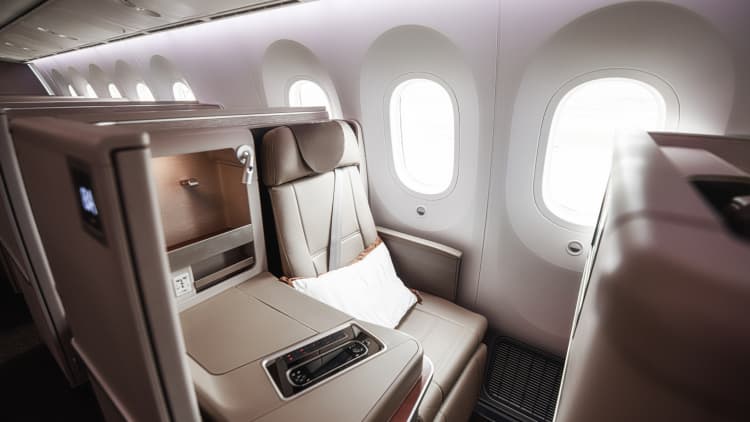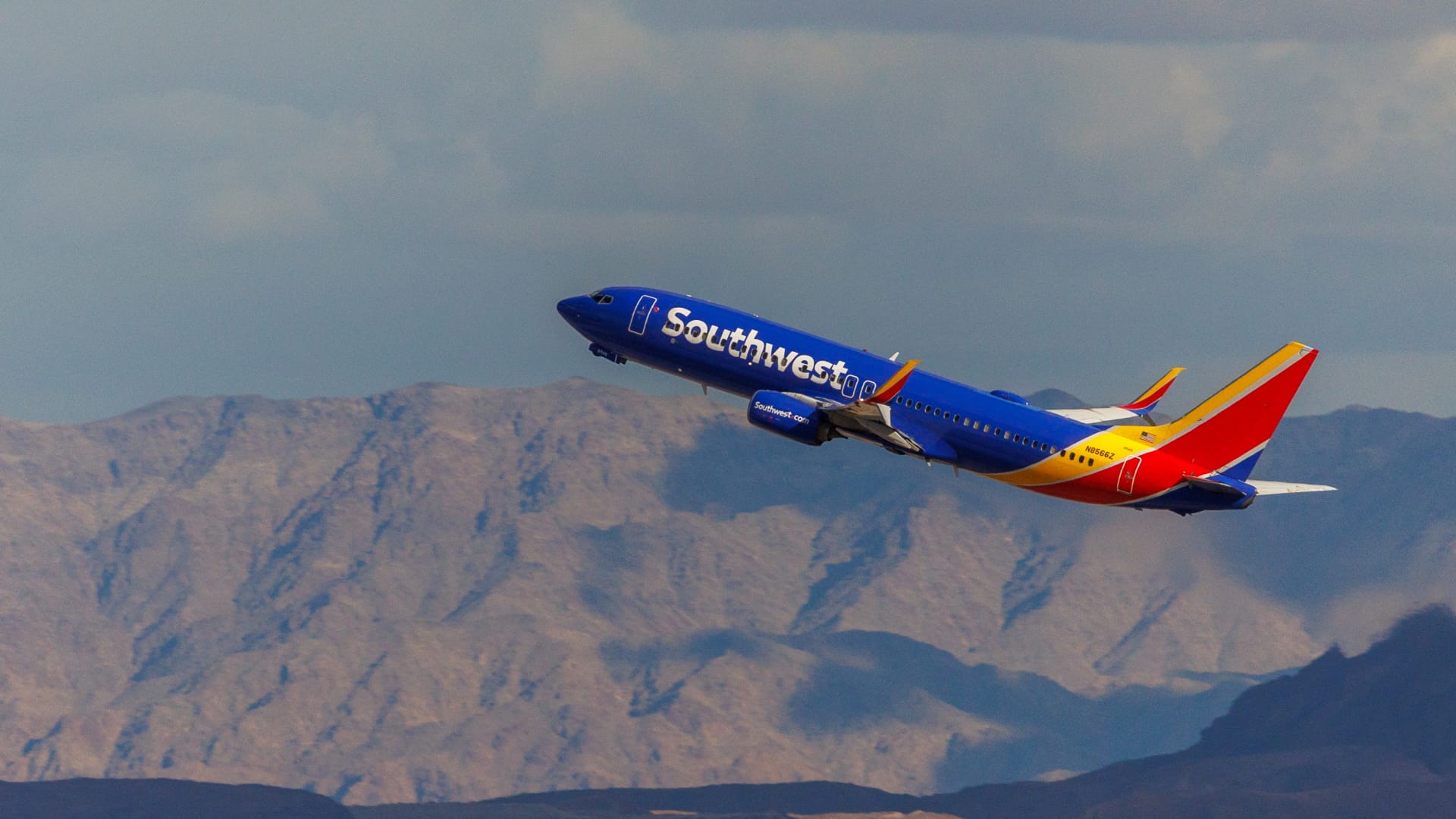A Southwest commercial airliner takes off from Las Vegas on Feb. 8, 2024.
Mike Blake | Reuters
Southwest Airlines is ending open seating and will offer extra legroom seats on its airplanes as mounting pressure on the carrier to increase revenue prompts the biggest changes to its business model in its 53 years of flying.
The airline plans to start selling the first flights that will offer extra legroom next year, it said Thursday. It also plans to begin overnight flights, starting in February.
Southwest executives have said for years that they were studying such changes and hinted in April that the airline was seriously considering assigning seats and offering extra legroom options. The airline currently puts customers in one of three boarding groups and assigns a number, setting off a mad dash to check in a day before the flight. Customers can get earlier boarding though if they pay for a higher-priced ticket, they’ll get a better boarding slot.
When travelers choose a competitor over Southwest, the airline found in its research that its open seating model was the No. 1 reason for that choice, the carrier said in a release that outlined the changes. It also said 80% of its own customers prefer an assigned seat.
“Although our unique open seating model has been a part of Southwest Airlines since our inception, our thoughtful and extensive research makes it clear this is the right choice — at the right time — for our Customers, our People, and our Shareholders,” CEO Bob Jordan said in a news release Thursday.
The Dallas-based carrier had prided itself and raked in steady profits for most of its more than five decades of flying on its simple business model. But during the company’s second-quarter earnings call, Jordan reiterated previous views that the way travelers fly now has changed and that the carrier wants to grow its market share with corporate business travelers.
“Customers are just taking fewer short haul trips today. They’re flying longer, and when they fly longer, the importance of an assigned seat goes up,” Jordan said. “Premium product growth has outpaced growth in main cabin revenue for some time here, and in other parts of the economy consumers are just reducing non-essential retail purchases and spending that on experiences.”
Southwest is not, however, looking to change its beloved two free checked bags policy. After fares and schedule, the carrier’s “bags fly free” policy is the No. 1 reason why customers choose Southwest over competitors, Jordan said on the call.
The airline is under even more pressure now to segment its product like other airlines after activist investor Elliott Investment Management disclosed in June a nearly $2 billion stake in Southwest and called for new leadership as the carrier underperformed competitors.
Southwest reported a 46% drop in its second-quarter profit on Thursday.

Southwest has been working on the seating changes for almost a year, and Jordan told CNBC’s “Squawk on the Street” on Thursday that it was unrelated to Elliott’s push for leadership and policy changes.
Elliott has called for Jordan and Southwest Chairman Gary Kelly, both more-than-three-decade Southwest veterans, to be replaced.
Jordan brushed off those calls Thursday and said Elliott “has shown no willingness to engage in any meaningful conversation.”
“We’d be happy to do that but it’s hard to have a dialogue that’s one-sided,” he told CNBC in the interview.
Elliott later said in a statement that Southwest’s changing customer preferences “did not emerge overnight; management simply was not doing its job.
“Southwest can do far better, and we look forward to offering our fellow shareholders an opportunity to elect a Board of industry leaders that can return Southwest to best-in-class performance,” it said later Thursday.
The airline said it expects about a third of the seats on its Boeing 737s will have “extended legroom, in line with that offered by industry peers on narrowbody aircraft.” The Federal Aviation Administration would need to approve the cabin layouts, the airline added.
Southwest executives didn’t specify how much revenue they expect the seating assignments or more expensive legroom seats to generate, but said they project it to be “substantially north of” $1 billion annually, which is how much the airline’s current ancillary products like Early Bird boarding generate.
Jordan said the airline expects “very little incremental” capital expenditure because the change calls for adjusting the cabin rather than a buying a new one.
Executives said the price between standard economy and extra legroom seating won’t be very large.
Analysts criticized Southwest for moving too slowly. Rival carriers offer a host of options to upsell customers like extra legroom seats, premium economy or business class. Other airlines, however, like Delta, United and American, four years ago took a cue from Southwest and ended flight change fees for most tickets.
Southwest will provide more details about the upcoming changes at an investor day at the end of September.


